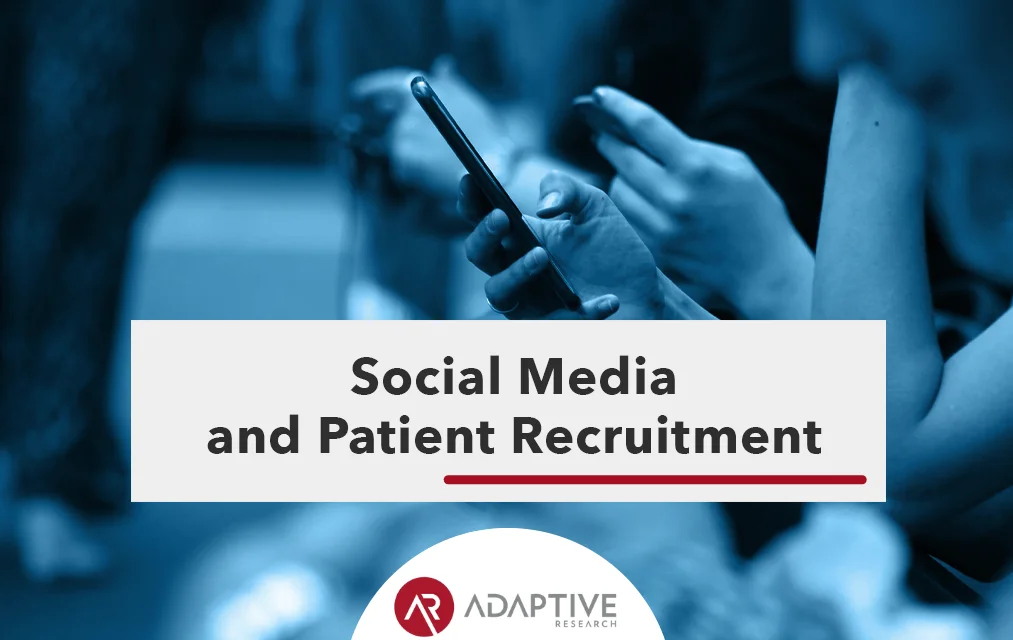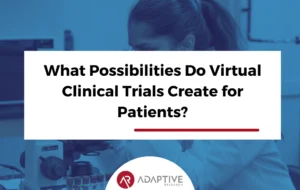On social media, patients can connect with healthcare professionals (HCPs) and ask questions about day-to-day life, offer feedback, and respond to health news and research. Social media can also be a great way to recruit individuals to clinical trials. But, there are many factors to consider, such as recruitment strategies, privacy issues, and social media rules.
So, how can clinical trialists effectively recruit using social media?
First, you must ask yourself if using social media is the best way to reach your audience. There are many different recruitment techniques that can be used on social media. For example, some HCPs might choose blogging as a way to recruit patients because it provides specific information about the clinical trial.
But others may choose Facebook Ads! In fact, Facebook Ads are a great way to reach people who are interested in a clinical trial. You can reach just about anyone with an interest in your study. This diversification is important for clinical trial designers, as patient recruitment can often be age-dependent.
However, not every Facebook user has the time to read your status update or research on your page. For this reason, it is important that you post high-quality content and ensure that your posts are highly relevant to both end-users and search engines. Then you should think about how social media fits into your overall recruitment strategy.
Social Media Recruitment Strategies
There are a number of ways that social media can be used as part of a wider recruitment strategy. These include:
- Using ads to target those with an interest in your condition. In addition, you could use the same adverts to point those interested towards other resources such as clinicaltrials.gov or your own study website.
- Linking up with groups that are relevant to your study—for example, patients’ support networks or patient organizations that have a high online presence. You can then share information about the trial, encouraging them to share the message further.
- Encouraging people to sign up for trial updates, which will keep them informed about developments and encourage participation.
People who use social networking sites are a highly receptive audience, particularly if they have a condition that you are researching. While it’s important not to be too promotional on your study account, social media provides a good opportunity to provide information about trials and encourage people to sign up for updates.
Using social networking sites as part of your recruitment strategy can have significant implications, so plan it out carefully before you start. Linking with relevant groups, building a supportive following, and encouraging them to forward your trial information on are all great ways to boost recruitment.
Social Media Privacy Concerns
When recruiting participants over social media, be aware of privacy issues. It is a good idea to consult a legal expert. Ensure that any information collected is done in accordance with the relevant guidelines and regulations, such as the Data Protection Act (for UK residents) or Health Insurance Portability and Accountability Act (HIPAA; for US residents). In general, you should not be asking for health information, but if you do need to ask participants about their health it is important that they know that it is for recruitment purposes only. If they agree to share information, this should also be made clear.
In cases where you have collected personal data from participants for recruitment purposes, it is a good idea to destroy this data when the study has finished or when you no longer need it.
Do’s and Don’ts of Social Media Use for Clinical Trials
DO’s
- Include links to your social media accounts on all of your study print publications, such as flyers and consent forms.
- Create a hashtag (#) for your study that can be used on Facebook, Twitter, and other social media to track and promote the campaign.
- Do include hyperlinks in the body content of the email or tweet so that people can easily follow it and share it.
- Use your Facebook, Twitter, and other social media accounts to promote awareness of your study by encouraging followers or friends to tell their friends about the study via email or phone. Share links with bloggers/ vloggers/ podcasters who may be interested in featuring your trial on their blog or podcast.
DON’Ts
- Don’t treat social media as a magic bullet for study recruitment. It is only one tool in the toolbox. Use it to enhance patient recruitment by combining it with other traditional recruitment methods.
- Don’t require patients to use social media as a condition of enrollment.
- Don’t place patients at risk by using their real names and other identifying information without proper informed consent.
- Don’t disseminate any participant information without proper informed consent.
How Do I Get Started?
There are many different social media platforms and each has its own strengths and weaknesses. A global company with a large user base may want to focus on Facebook whereas a more local company might choose Instagram. Think about your target audience and pick appropriate social media channels depending on what your research topic is and who you wish to recruit (e.g., by age group).
In sum, there is no one-size-fits-all approach to social media and patient recruitment. Every clinical trial will require a unique approach. Before social media, recruiting for clinical trials was difficult. Thank goodness for social media!
For help with the clinical trial process from A to Z, Adaptive Research is a clinical trial platform that streamlines all the processes involved, so you don’t have to. Learn more about how Adaptive Research can help you here.






